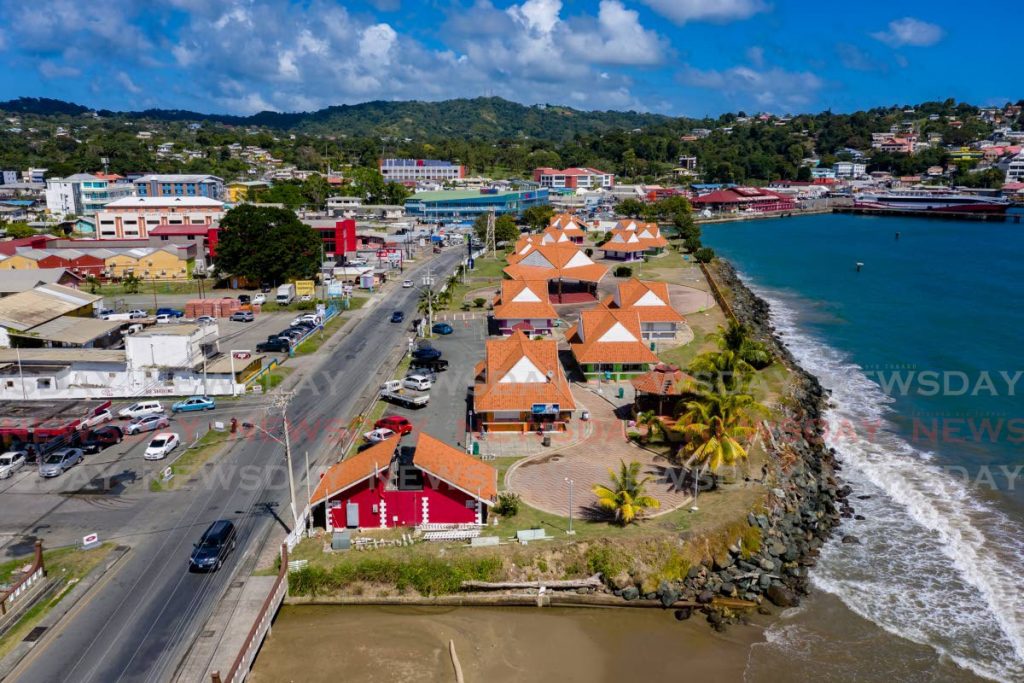Tobago’s 44-year-old fight for self autonomy

THE six-six electoral tie between the PNM and the PDP in last Monday's Tobago House of Assembly (THA) election is the latest twist in Tobago's 44-year journey towards seeking self-autonomy.
After the PNM won the 1956 general election, then prime minister Dr Eric Williams promised to pay particular attention to the needs of Tobago.
In 1977, Democratic Action Congress (DAC) leader ANR Robinson complained that TT's 1976 Republican Constitution ignored the relationship between Trinidad and Tobago. In 1979, a draft bill was produced, which made provision for a Tobago Island Council to formulate economic planning and finance for the island.
The 1979 bill was rejected by the PNM government, but it led to the introduction of the THA Act in 1980. This allowed the THA to formulate and implement policy on all matters referred to it by the relevant minister and to be responsible for implementing central-government policy related to Tobago.
The act was repealed and replaced by the THA Act 1996, which remains in force today.

This legislation gives the THA responsibility over matters such as tourism, the environment, health services, and education. But its Executive Council remains subject to the general control and direction of the central government.
Under this act, the THA does not have the power to enact bills related to Tobago. These bills must be transmitted to Cabinet with a request for them to be enacted by the Parliament.
In 2006, then prime minister Patrick Manning presented a new draft Constitution to Parliament which replicated the existing arrangements in the 1996 act.
In October 2007, a committee chaired by Dr John Prince (the Prince Committee) was appointed by the THA to review the Constitution and the 1996 act. After extensive public consultation, the committee submitted its report to the THA in September 2011. It proposed two bills providing for equality of status between Trinidad and Tobago, a federal system of government, and power to the THA to impose taxes. The UNC-led People's Partnership (PP) coalition was in government at that time.
Then prime minister (now Opposition Leader) Kamla Persad-Bissessar directed that the PP publish its own green paper in 2012, titled Towards Internal Self-Government for Tobago. Attached to this paper was the Constitution (Amendment) (Tobago) Bill 2011, which sought to enhance the legislative and executive powers of the THA by providing for the establishment of a Tobago legislature of which would have exclusive responsibility for matters specific to Tobago and shared responsibility with central government for matters relevant to Trinidad and Tobago.
The green paper was rejected by the THA on the ground that it was a less comprehensive document and less representative of the views of Tobagonians than the two bills produced by the Prince Committee. Repeated talks between then THA chief secretary Orville London and Persad-Bissessar failed to resolve the issue. In May 2015, London claimed the PP had stalled talks on self-government.
After the PNM won the 2015 general election, the Prime Minister declared, "As a Tobagonian I have a duty to ensure that the process is completed in the shortest possible time, where Trinidad and Tobago gives the maximum autonomy that Tobago could have in the unitary state of TT."
In October 2016, Government brought legislation to amend the Constitution to give Tobago self-government. This bill was later revised, and after being approved by Cabinet, was laid in Parliament in 2018. The bill was referred to a joint select committee, whose work was saved and brought forward to 2020. The committee was due to report back to Parliament on December 31, 2020.
Some of the changes proposed in the bill include establishing an autonomous Tobago legislature, which “shall make laws for the peace, order and good government of Tobago.”
Under the draft bill, the legislative body would consist of the THA and a new second house, with members to be determined by the THA.
The bill also proposed an Executive Council with expanded powers, which “shall have the general direction and control of the Tobago Island Government and shall be collectively responsible therefore to the Tobago Legislature.”
Under this legislation, central government would retain exclusive powers over matters such as immigration, foreign policy, national security, aviation and the judiciary.
The bill requires a two-thirds majority (27 votes) for passage in the House of Representatives. The PNM has 22 seats in the House and the UNC 19.
Before and after last year's election, Dr Rowley said the bill could not be passed in the House without Opposition support. Last year, Persad-Bissessar declared the UNC will not support any special-majority legislation the PNM brings to Parliament.


Comments
"Tobago’s 44-year-old fight for self autonomy"